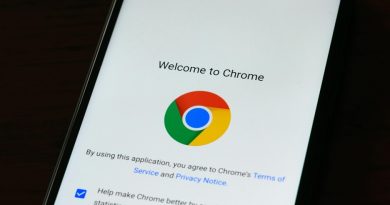The End of the App Store? How New Regulations Are Forcing Apple and Google to Allow “Sideloading”
For the last fifteen years, the rules of the mobile world have been incredibly simple. If you wanted an app on your iPhone, you went to one place: Apple’s App Store. If you were on Android, you went to the Google Play Store. These two digital storefronts have acted as powerful, unassailable gatekeepers, controlling the flow of all mobile software, setting the rules for developers, and taking a hefty 15-30% cut of every dollar spent.
This was the “walled garden” model, and it created the most valuable and tightly controlled ecosystems in business history.
Now, a regulatory tsunami, led by the European Union’s landmark Digital Markets Act (DMA), is smashing holes in those walls. Regulators are forcing Apple and Google to do something they have fought against for years: allow users to install apps from outside the official stores. This practice is called “sideloading,” and it marks the beginning of the end for the App Store’s absolute monopoly.
What is Sideloading, and Why Was It Banned?
Sideloading is just a technical term for installing an app from any source other than the official app store. It’s how we’ve installed software on our Mac and Windows PCs for decades—you go to a developer’s website, download a file, and install it.
On mobile, however, Apple in particular has strictly forbidden this. Their argument has always been centered on security. By forcing all apps through a single App Store, Apple says it can review every app for malware, scams, and privacy violations, protecting users from harm. They argue that opening the gates to sideloading would turn the iPhone into a chaotic and dangerous “wild west,” just like the PC world.
The Regulatory Hammer: The Digital Markets Act
Regulators in the EU, and increasingly in other parts of the world, saw this not as a security feature, but as an anti-competitive monopoly. The Digital Markets Act (DMA) is a sweeping piece of legislation designed to curb the power of Big Tech “gatekeepers.” One of its core mandates is forcing dominant mobile platforms like iOS to open up to competition.
This means they must allow:
- Alternative App Stores: A company like Epic Games or even Microsoft can now launch its own competing app store on the iPhone.
- Direct Downloads: Developers can now offer their apps for download directly from their own websites, completely bypassing Apple’s review process and, crucially, its commission.
The Big Debate: Freedom vs. Security
This new world creates a fundamental tension between user freedom and platform security.
- The Argument for Freedom: Proponents of sideloading say it’s a massive win for consumers and developers. With competition, developers will no longer be forced to pay the “Apple Tax,” which could lead to lower app prices and subscription fees for users. It allows for new types of apps that Apple previously banned, like video game streaming services or powerful system utilities. It’s about giving users the freedom to control their own devices.
- The Argument for Security: Apple and its supporters maintain that this will be a disaster for user safety. They argue that less tech-savvy users will be easily tricked into downloading malware-infected apps from unofficial sources. It could lead to a proliferation of scams and privacy-violating software, degrading the safe and trusted experience that iPhone users expect.
The Verdict: A New, More Complicated World
Is this the “end of the App Store”? Not exactly. For the majority of users, the official, pre-installed App Store will remain the primary and most trusted place to get their software. Its convenience and perceived safety are powerful advantages.
However, its absolute monopoly is over. We are entering a new, more open, and more “PC-like” era for the smartphone. Power users will now have the freedom to install the apps they want from wherever they want. Developers have new ways to reach their customers without paying a commission.
This new freedom comes with new responsibilities. Users will need to be more vigilant and security-conscious than ever before. But the walls of the garden have been breached, and the mobile economy will never be the same.




